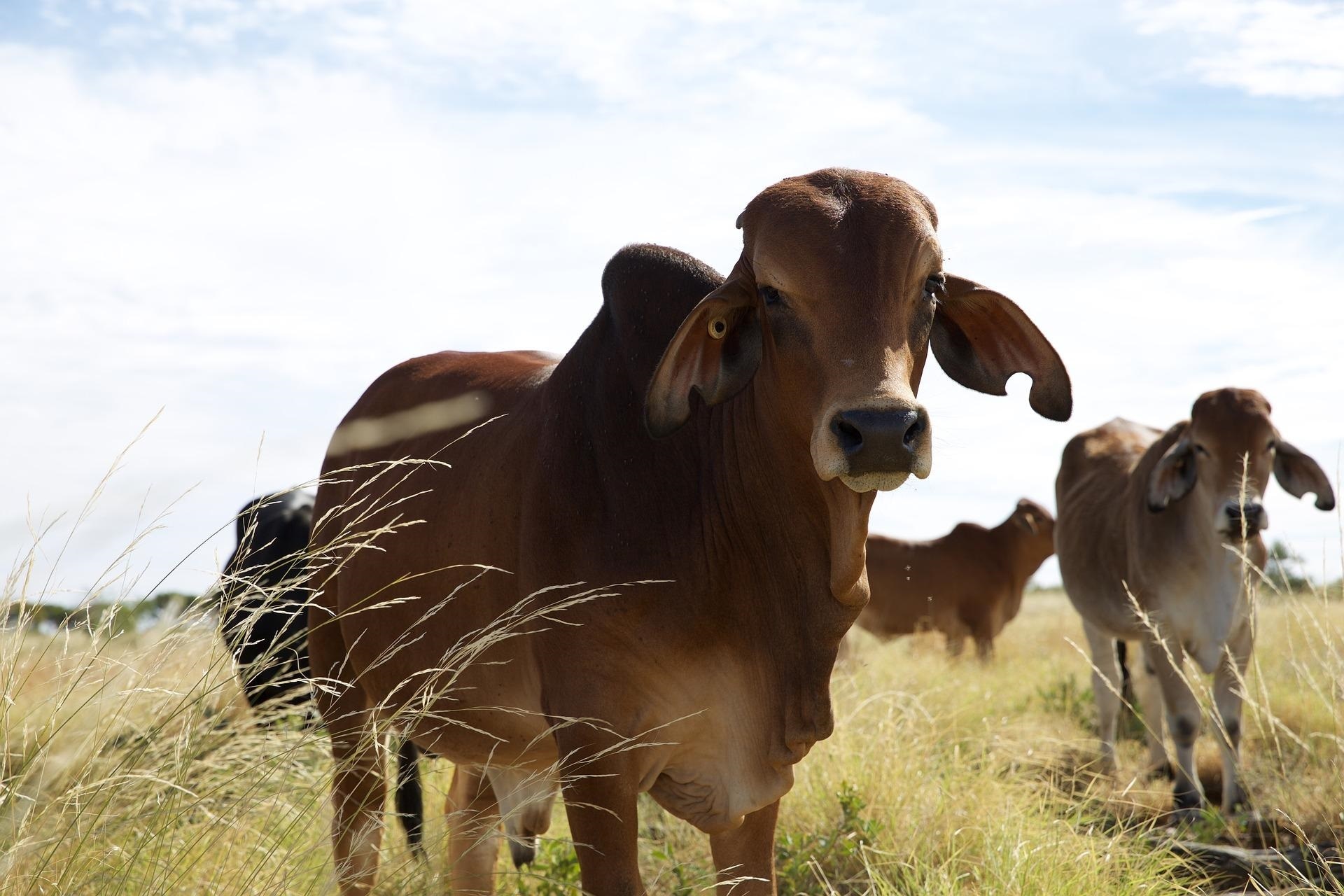An international research team, headed by Davies Research Centre at The University of Adelaide, has demonstrated that the DNA sequences of the chromosomes inherited from the father and the mother can possibly be disentangled to generate true diploid genomes from a single person.

Brahman cattle. Image Credit: The University of Adelaide.
Using a novel genome assembly strategy, the scientists have demonstrated that genomes of two significant modern-day cattle breeds, Brahman (Bos taurus indicus) and Angus (Bos taurus taurus), can be fully decoded from a single hybrid individual that carries the genetics of these two breeds.
The study was published in the Nature Communications journal and financially supported by the Davies Research Centre over the past 15 years.
Although this approach was demonstrated in cattle, it is also relevant to other species including humans.
According to Dr. Lloyd Low, from the School of Animal and Veterinary Science at The University of Adelaide, the method, known as trio binning, provides the real genome sequence of every chromosome in an individual.
It is difficult to acquire a whole genome from an organism that inherits 50% of the chromosomes from the mother and the remaining 50% from the father. This is due to the high similarity present between the parental chromosomes.
Back in 2018 we were able to demonstrate that with this method it was possible to identify large sections of the DNA from the parents. Now in 2020 we have used the same concept to create the sequence of full chromosomes.”
Dr Lloyd Low, School of Animal and Veterinary Science, The University of Adelaide
“Disentangling maternal and paternal genomes is very difficult, but we have now been able to do this and create the best genome assemblies available for any livestock, and arguably any species. These high-quality genome sequences will make it easier to more accurately study the genetics of cattle to improve production and welfare traits,” added Professor John Williams.
Thousands of years ago, Angus and Brahman cattle subspecies were domesticated individually and since then, they have been subjected to highly different selection pressures; beef production in the case of Angus cattle and pest and humid settings in the case of the Brahman cattle. Such different traits and histories are mirrored in their genomes, making them the perfect test subjects.
Brahman cattle is an Indian breed that can regulate their body temperature in a better way and are regularly crossed with European breeds like Angus to produce cattle that are better acclimatized to tropical climates.
Given the huge variations in production and adaptation characteristics between the indicine and taurine cattle, genome comparison can help one to understand the way animals adapt to their setting, which is of major economic and scientific interest.
According to Professor Stefan Hiendleder, high-quality genomes of the two cattle subspecies were required to decode the variations between the indicine and taurine cattle.
This technology will ultimately lead to breeding cattle which are more productive in harsh environments and also better suited from an animal welfare perspective, Comparison between the Brahman and Angus revealed an indicus-specific extra copy of fatty acid enzyme which may be important for the regulation of the metabolism related to heat tolerance.”
Stefan Hiendleder, Professor, The University of Adelaide
Source:
Journal reference:
Low, W. Y., et al. (2020) Haplotype-resolved genomes provide insights into structural variation and gene content in Angus and Brahman cattle. Nature Communications. doi.org/10.1038/s41467-020-15848-y.